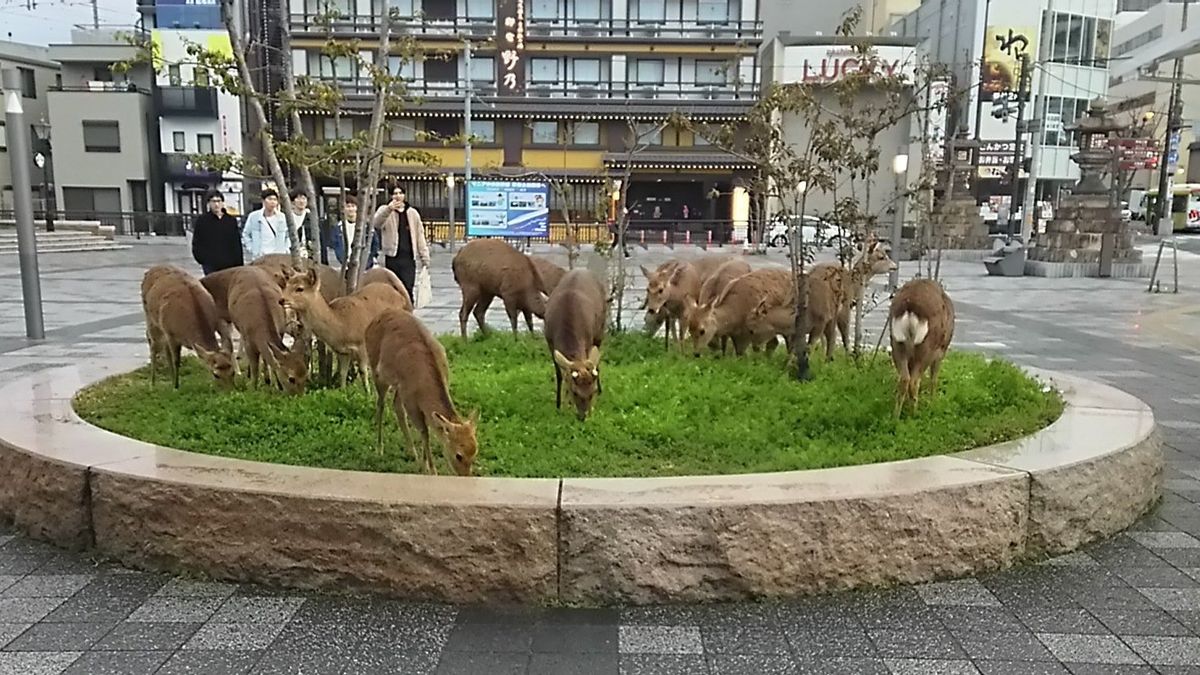JAKARTA - Reduced human activity during lockdown and self-quarantine during the COVID-19 pandemic has made many cities in the world look deserted. The absence of human activities outside the home, makes wild animals roam freely.
In Nara prefecture, Japan, a group of deer can be seen roaming the city streets. They even eat grass in the park near the red light area to the train station.
This incident occurred because, Nara Park experienced a decrease in the number of tourists by 80 percent due to the COVID-19 pandemic. Tourist objects that were once busy are now empty. As a result, the deer that are running short of food leave the park and visit public areas.
Less tourists in Nara = less people feeding the deer in the parks 🌷🌱 Now they're venturing out into the city eating flowers and plants, per Fuji TV # coronavirus # 新型 コ ロ ナ ウ イ ル ス の 影響 で 海外 観 光 客 の 減少 が 続 く 奈良 公園で 、 鹿 せ ん べ い を も ら え な く な っ て し ま っ た シ カ ち ゃ ん 達 😢 pic.twitter.com/yUFWJ4S9sj
- Kurumi Mori (@rumireports) March 6, 2020
The same thing happened in the United States (US). Lack of human activity makes a group of turkeys roam freely on the streets of Oakland, California, USA.
Not only poultry and raccoons who visit residential areas, because they are quiet from activities. Wild animals such as forest goats are also seen visiting human settlements in Europe. This moment made the citizens of Barcelona who were locked themselves in their homes amazed, seeing how the wild animals walked through the lonely city streets.
In San Felipe, Panama, many restaurants and bars have closed. Apart from that, hardly any tourists are usually seen strolling around the beach. The director of the Smithsonian Tropical Research Institute, Matt Larsen, said he noticed some new visitors on the beach near his home.
"There are three raccoons, playing right on the edge of the waves. I've lived here six years, and it's something I've never seen before," said Larsen, as quoted by The Guardian.
Llandudno has had some unusual visitors! Mountain goats have been making the most of the town's quiet streets. 🐐https: //t.co/YmdwweGEGO pic.twitter.com/1FQIlxBpms
- ITV Wales News (@ITVWales) March 31, 2020
According to University of Massachusetts Amhers ecologist Paige Warren, quarantine or lockdown situations can affect wildlife behavior in unexpected ways. Wild animals that live near human settlements will become more active out as human activities decline during the COVID-19 pandemic.
"I'm interested in whether creatures like coyotes and foxes are starting to act more daringly in American cities," he said.
At the same time, there were fewer people on the streets who could chase away some of the animals, he said, especially driving animals that were alive from anything that humans could eat or that could live in the trash. Finally, the city view looks like a Jurassic Park movie.
Those changes will probably be slow, say the researchers. Foxes and coyotes will be more willing to come out of their hiding places. Birds will also roam, graze, and hunt for new pastures.
The narrative that wildlife populations will dramatically recover and reclaim cities is a fantasy. However, this phenomenon can be a consolation for those who have been in isolation for weeks.
The English, Chinese, Japanese, Arabic, and French versions are automatically generated by the AI. So there may still be inaccuracies in translating, please always see Indonesian as our main language. (system supported by DigitalSiber.id)











